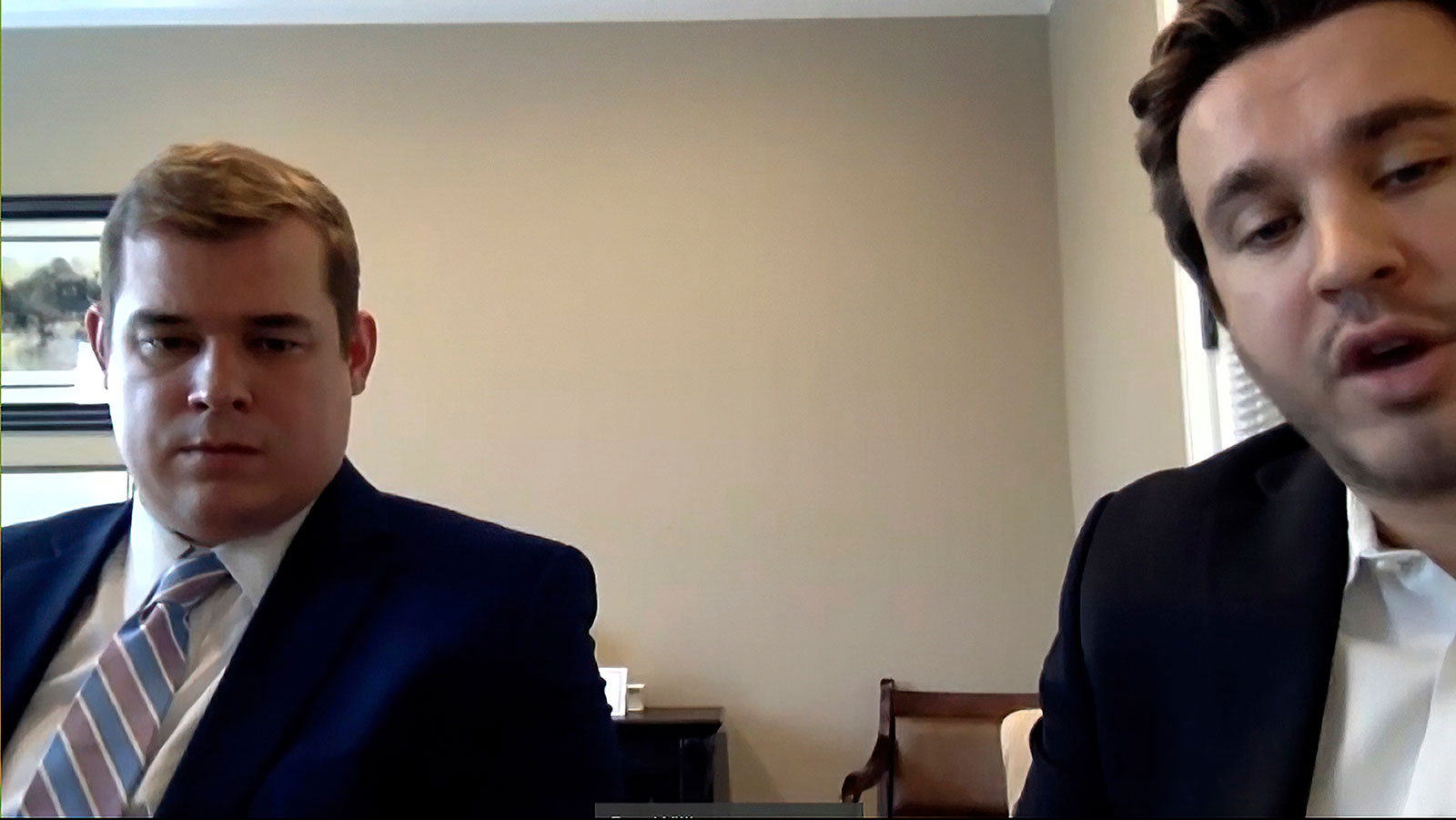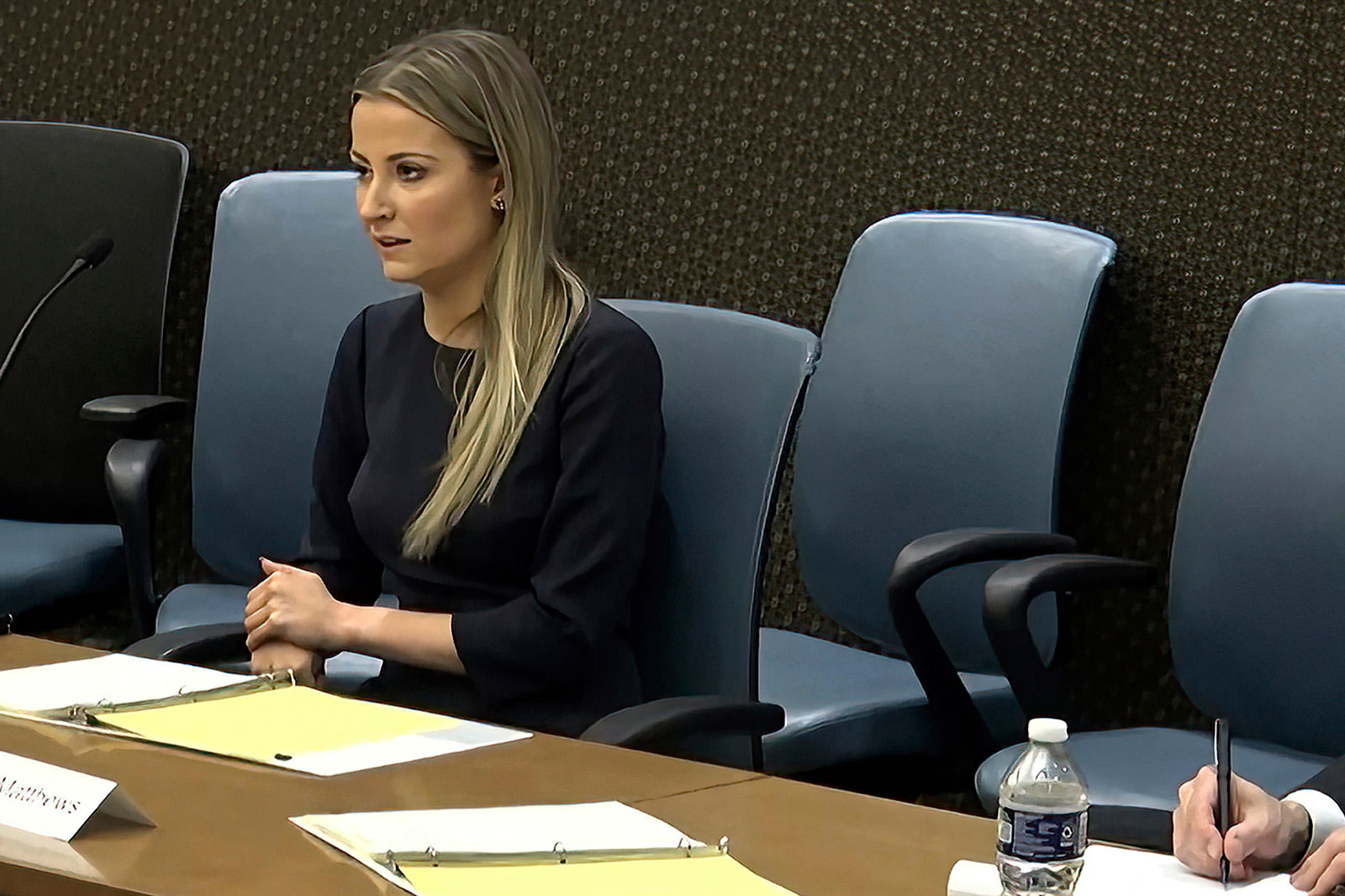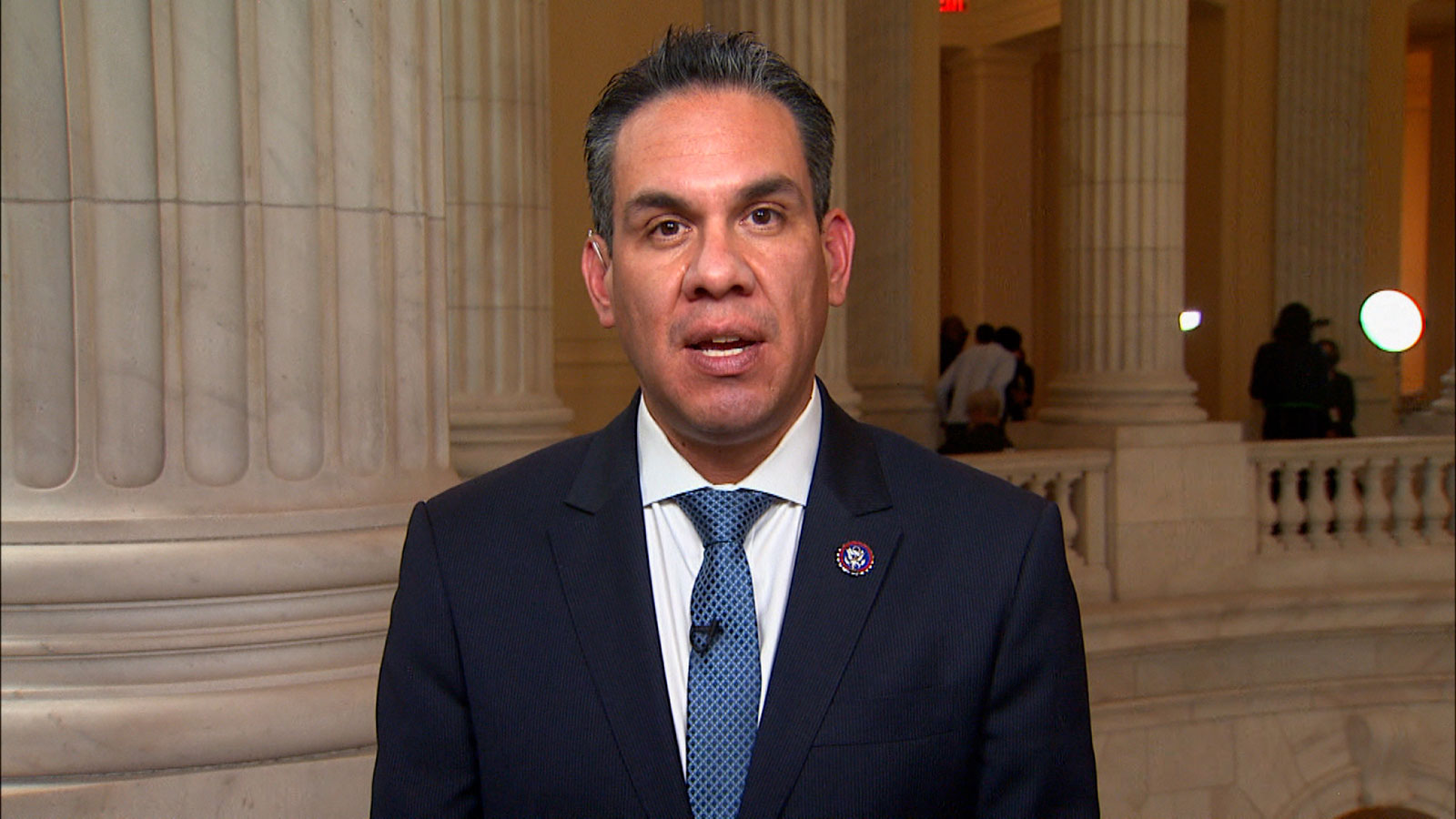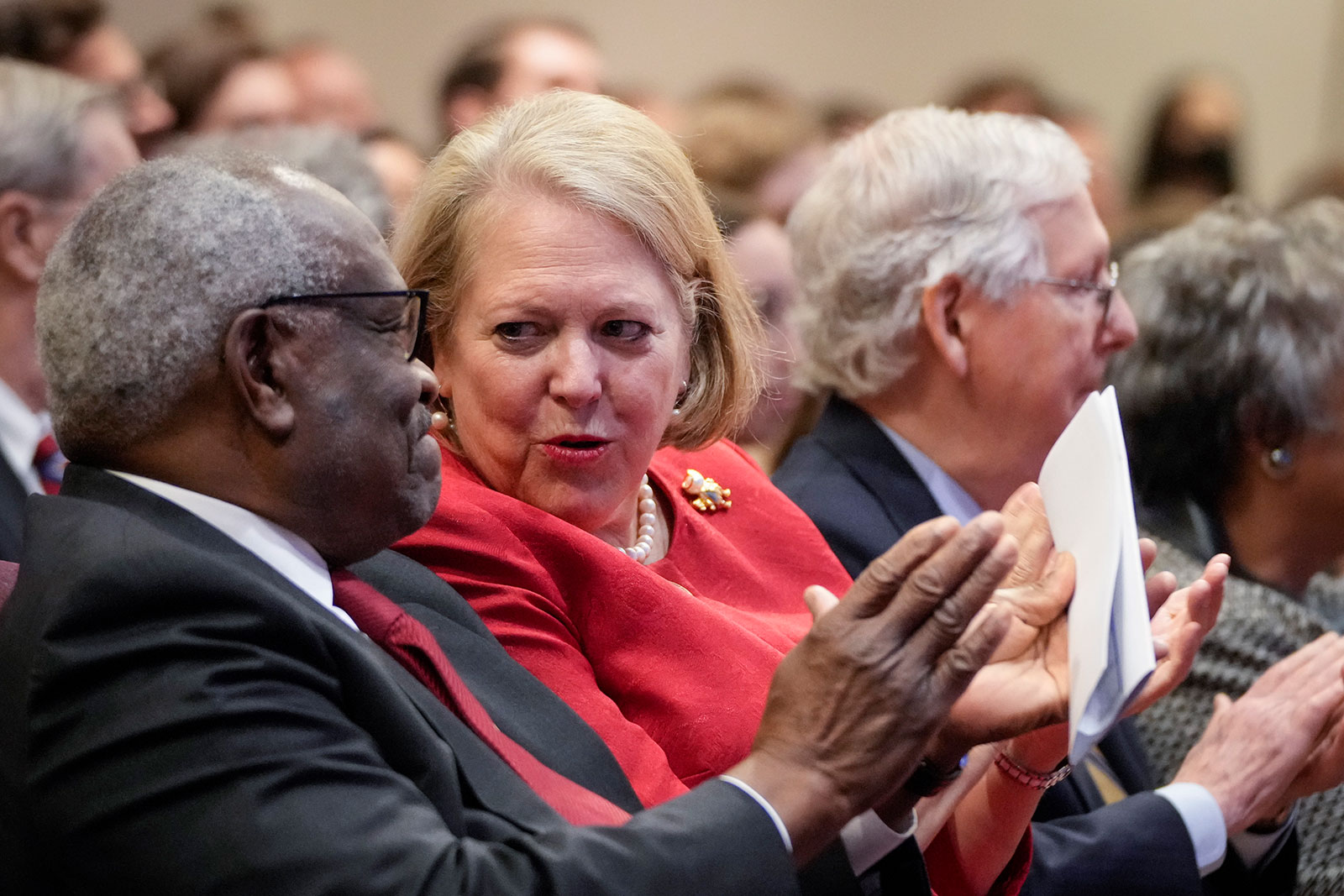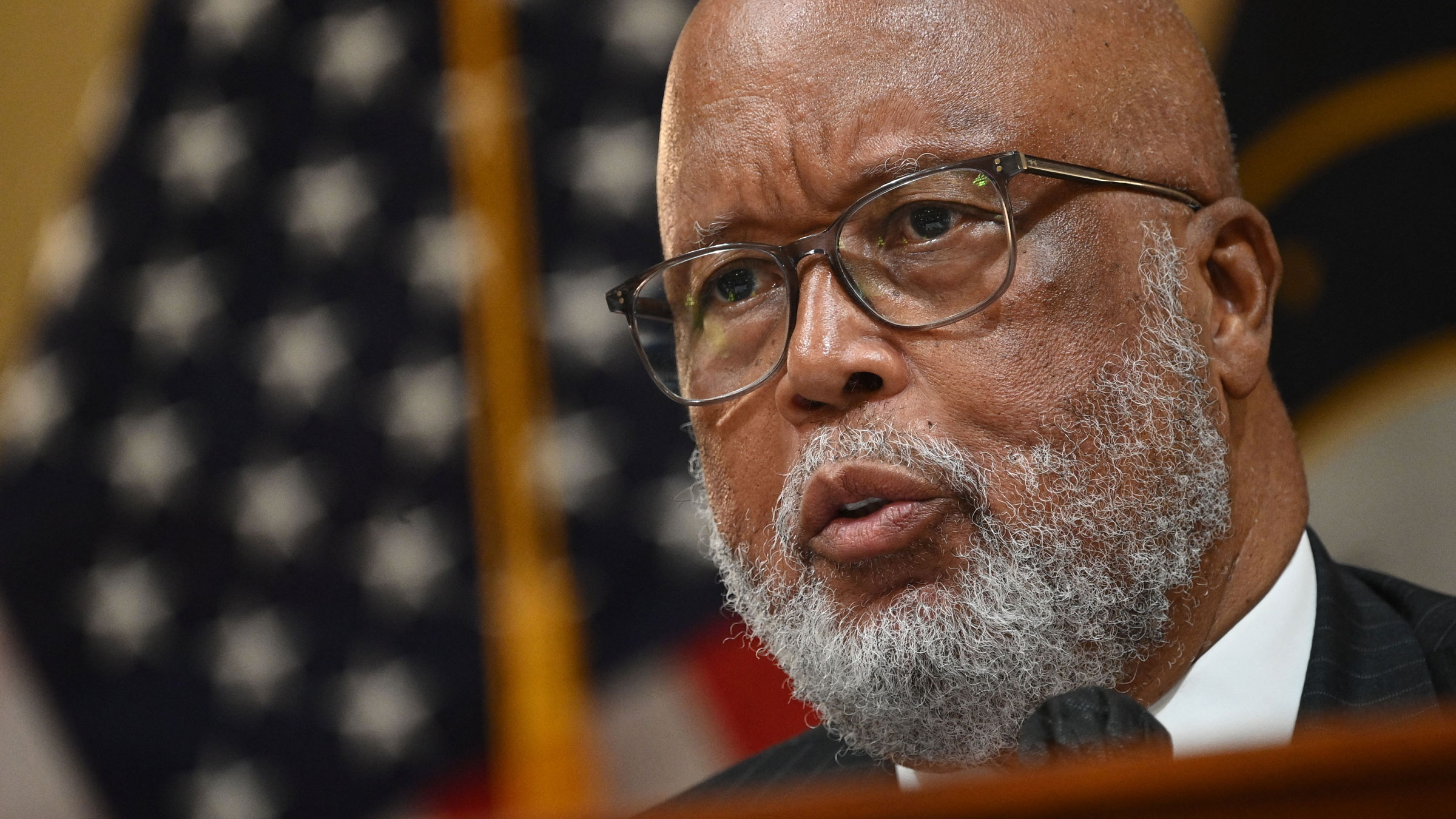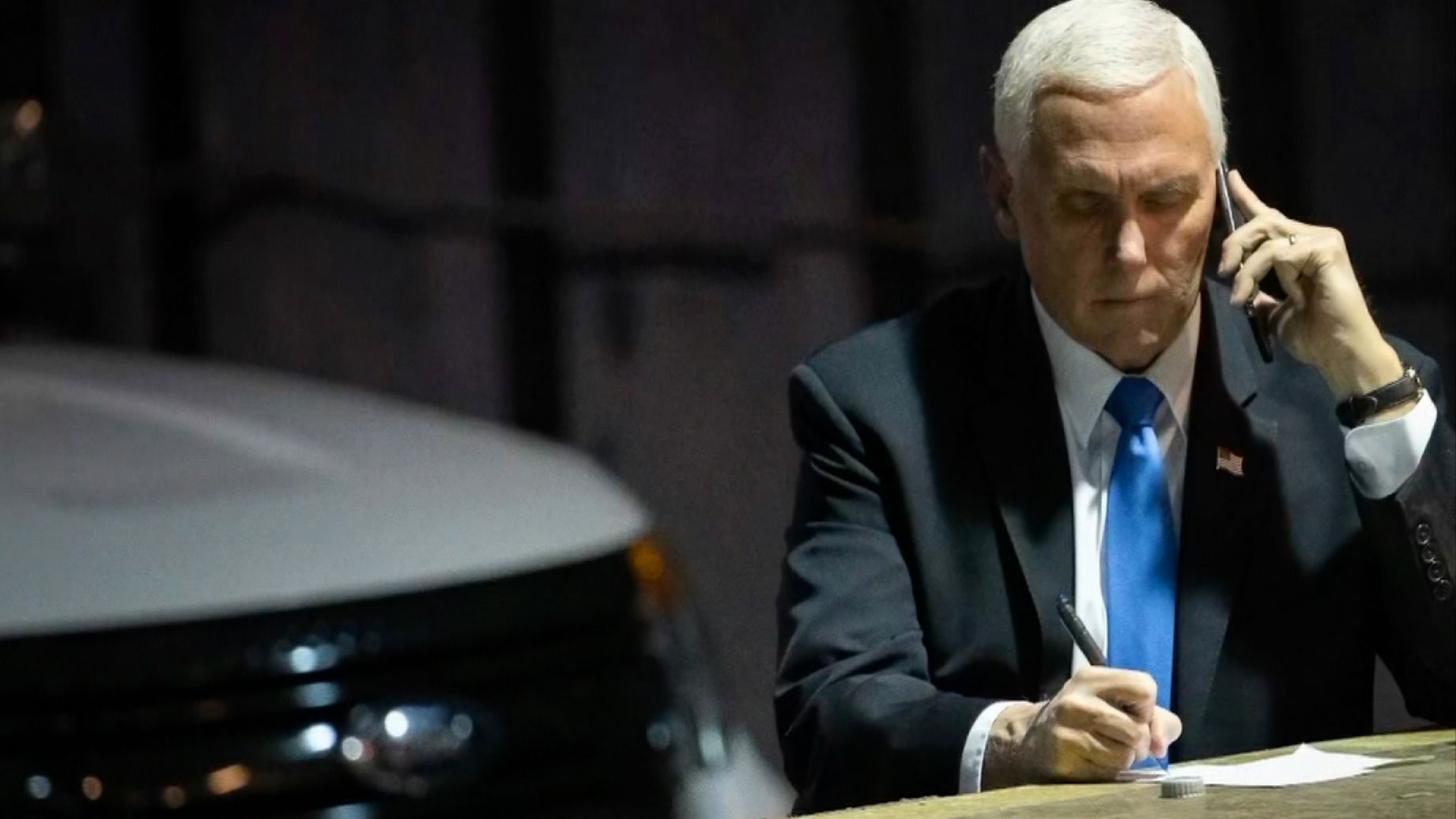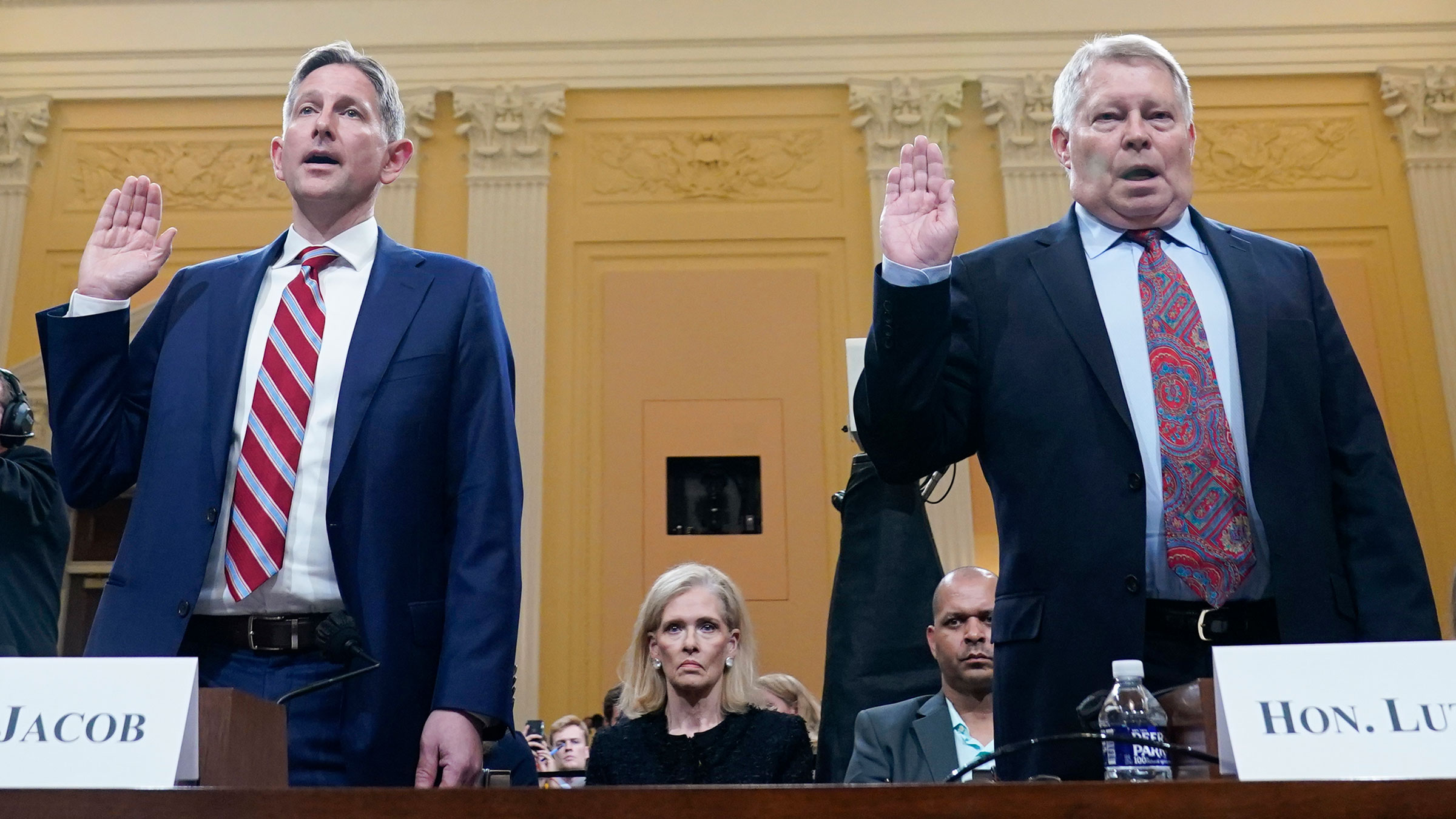
The House select committee investigating the Capitol insurrection on Thursday detailed how former President Donald Trump tried to pressure his vice president to join in his scheme to overturn the presidential election — and how Pence's refusal put his life in danger as rioters called for Pence's hanging on Jan. 6, 2021.
Two witnesses testified during Thursday's hearing who advised Pence that he did not have the authority to subvert the election: former Pence attorney Greg Jacob and retired Republican judge J. Michael Luttig.
The committee walked through how conservative Trump attorney John Eastman put forward a legal theory that Pence could unilaterally block certification of the election — a theory that was roundly rejected by Trump's White House attorneys and Pence's team but nevertheless was embraced by the former President.
The next committee hearing is scheduled for this upcoming Tuesday at 1 p.m. ET. The witnesses have not yet been announced.
Here are the key takeaways from the committee's third hearing this month:
Trump was told that Eastman's election plan was wrong — but tried it anyway: There were many revelations, but the perhaps most important one: Trump was told repeatedly that his plan for Pence to overturn the election on January 6 was illegal, but he tried to do it anyway.
According to witness testimony, Pence himself and the lawyer who concocted the scheme advised Trump directly that the plan was unconstitutional and violated federal law. Committee members argued that this shows Trump's corrupt intentions, and could lay the groundwork for a potential indictment.
In a videotaped deposition, which was played Thursday, Pence's chief of staff Marc Short said Pence advised Trump "many times" that he didn't have the legal or constitutional authority to overturn the results while presiding over the joint session of Congress on January 6 to count the electoral votes.
Even Eastman, who helped devise the scheme and pitched it to Trump, admitted in front of Trump that the plan would require Pence to violate federal law, according to a clip of a deposition from Jacob, Pence's senior legal adviser, which was played at Thursday's hearing.
Legal scholars from across the political spectrum agree that Eastman's plan was preposterous. Luttig, the former federal judge who advised Pence during the transition, testified at Thursday's hearing that he "would have laid my body across the road" before letting Pence illegally overturn the election.
The panel tied the Mike Pence pressure campaign to the Jan. 6, 2021, violence: The committee tried to connect Trump's pressure campaign against Pence to the violence on Jan. 6, 2021, by weaving together testimony from Pence aides, Trump's public statements and comments from rioters at the Capitol.
Some of the most compelling evidence came from the rioters themselves.
Many of them had listened to Trump's rallies where he claimed — inaccurately — that the election was rigged against him, and Pence had the power to do something about it while presiding over the Electoral College certification. While the insurrection was underway, they cited Trump's comments about Pence.
And many of them saw, in real-time, Trump's tweet criticizing Pence while the Capitol was under attack, where he said Pence "didn't have the courage to do what should have been done."
The point of highlighting this on Thursday was to lay the blame for the violence at Trump's feet. And right after the attack, many top Republicans agreed with that conclusion. But over the last year and a half, many Republicans have shied away from blaming Trump, and the committee hopes to change that.
Former Trump White House attorney Eric Herschmann told the committee that Eastman told him he was willing to accept violence in order to overturn the 2020 election. The panel played video from Herschmann's deposition where he described a conversation with Eastman about his claims that the vice president could overturn the election in Congress.
Herschmann warned Eastman that his strategy, if implemented, was "going to cause riots in the streets."
"And he said words to the effect of, 'There's been violence in the history of our country in order to protect the democracy, or to protect the republic,' " Herschmann said.
Eastman emailed Giuliani about receiving a presidential pardon after Jan. 6 Eastman emailed Rudy Giuliani a few days after Jan. 6, 2021, and asked to be included on a list of potential recipients of a presidential pardon, the committee revealed during Thursdays hearing. The committee said Eastman made the request to Giuliani, Trump's former attorney, in an email.
"I've decided that I should be on the pardon list, if that is still in the works," the email from Eastman to Giuliani read.
Eastman did not ultimately receive a pardon and refused to answer the committee's questions about his role in efforts to overturn the 2020 election, repeatedly pleading the Fifth during his deposition.
The committee argued during Thursday's hearing that Eastman's request for a pardon, and his decision to repeatedly plead the Fifth when questioned previously by the panel, indicates Eastman knew his actions were potentially criminal.
The star of Thursday's hearing was not in the room: One person noticeably absent on Thursday was the star of the hearing himself: the former vice president.
The committee cast Pence as the hero — making the case that American democracy would have slipped into a state of chaos had he succumbed to Trump's pressure campaign.
But as the committee touted Pence's commitment to the Constitution and bravery on Jan. 6, 2021, it was impossible to ignore the fact that the former vice president was not in the room.
Instead, the committee relied on live witness testimony from two former Pence advisers who appeared to speak on his behalf.
Earlier this year, the committee's chairman, Democratic Rep. Bennie Thompson of Mississippi, had suggested the committee would seek testimony from Pence. Still, the prospect of Pence appearing before the committee, particularly in public, has always been viewed as a long shot — to say the least.
Read more more takeaways from today's hearing here.
